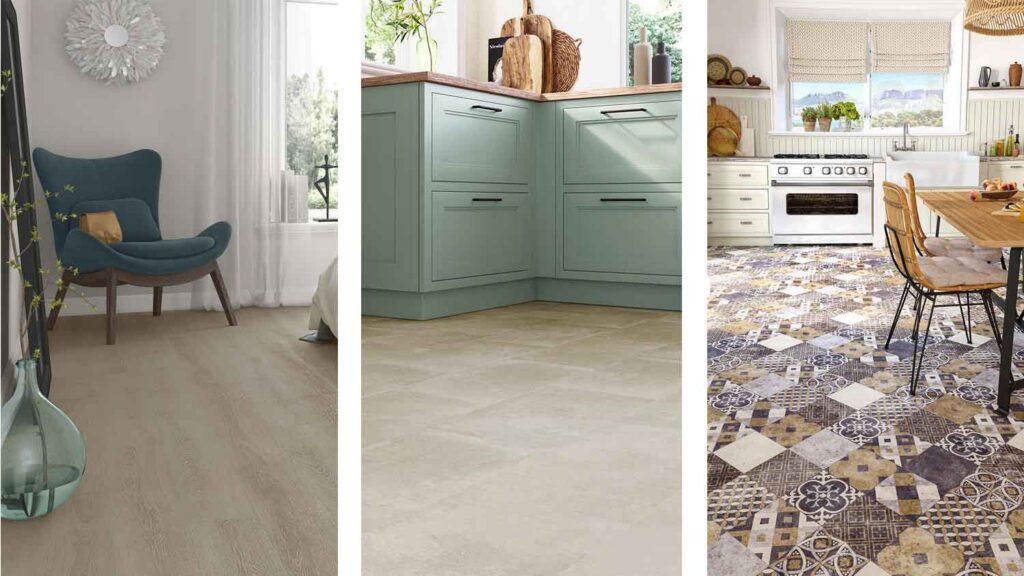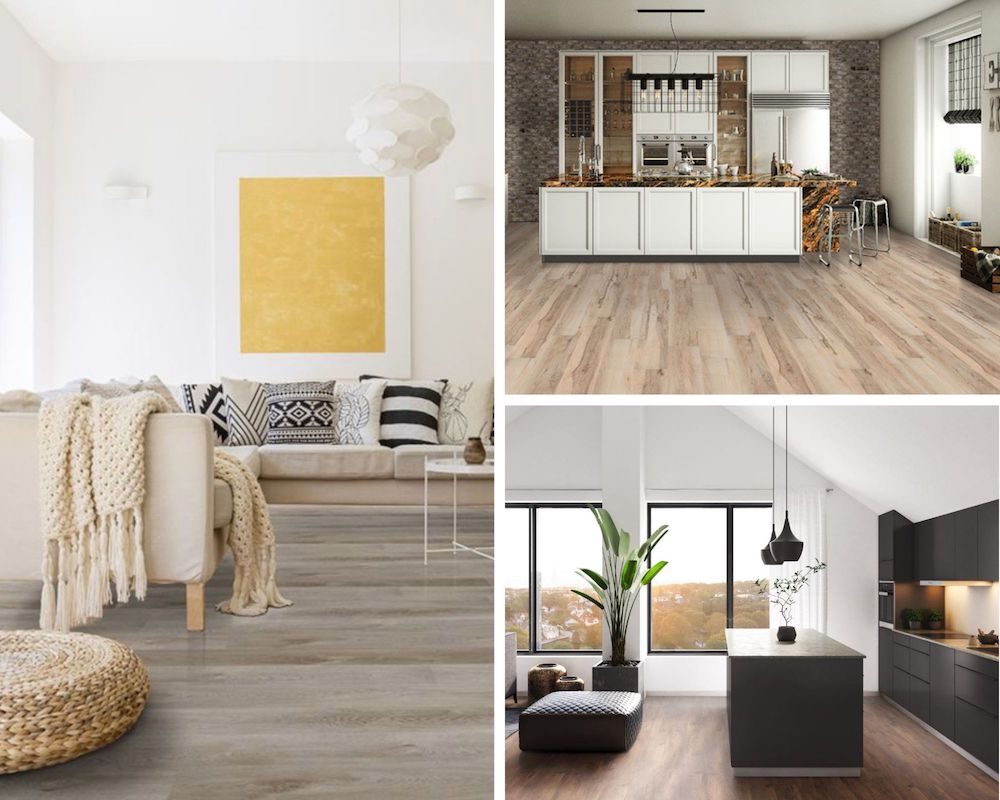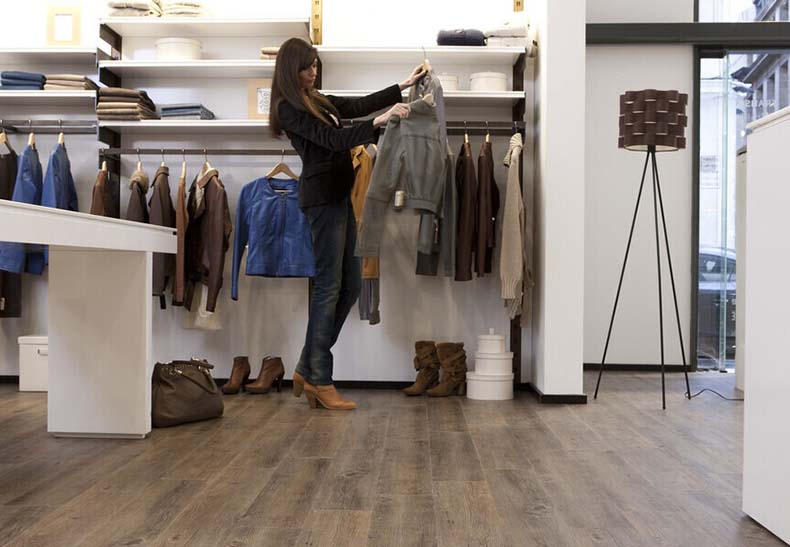When it comes to flooring options, vinyl has rapidly gained popularity for its affordability, durability, and versatility. Whether you’re updating a room in your home or outfitting an entire office, vinyl flooring offers numerous advantages that make it an appealing choice for many. But with so many types available, how do you know which vinyl flooring is best for your needs?
The best vinyl flooring depends on your specific needs. Luxury vinyl tiles (LVT) and luxury vinyl planks (LVP) are among the most popular options due to their durability, aesthetics, and easy maintenance. Factors like traffic, moisture exposure, and cost play key roles in the decision-making process.
In this guide, we’ll walk you through the different types of vinyl flooring, compare their features, and help you choose the best option for your space. From residential to commercial applications, understanding the various vinyl flooring options will ensure you make an informed choice. Let’s dive into what makes vinyl flooring stand out and how to pick the best fit for your environment.
1. What Are the Different Types of Vinyl Flooring?

Vinyl flooring comes in several forms, each with its own set of features and advantages. The main types are sheet vinyl, vinyl planks (LVP), and luxury vinyl tiles (LVT). These options cater to different needs, preferences, and budgets.
The main types of vinyl flooring are sheet vinyl, vinyl planks (LVP), and luxury vinyl tiles (LVT). Each offers distinct benefits in terms of design, installation, and performance.
- Sheet Vinyl: This type of vinyl comes in large, continuous sheets, which makes it ideal for spaces with large, uninterrupted areas like kitchens and bathrooms. It’s less likely to trap dirt and moisture along seams, making it easy to clean and maintain. However, it can be harder to install due to its size and need for precise cutting.
- Vinyl Planks (LVP): Luxury vinyl planks mimic the look of hardwood floors. They come in interlocking pieces that are easy to install, making them a popular choice for DIY projects. LVP is known for its durability and resistance to scratches, making it ideal for high-traffic areas.
- Luxury Vinyl Tiles (LVT): LVT offers the same benefits as LVP but with a tile appearance that mimics stone or ceramic flooring. LVT is highly versatile, offering a wide range of designs and is often used in areas that demand a more sophisticated aesthetic, such as bathrooms and entryways.
| Type of Vinyl Flooring | Best For | Design Flexibility | Installation | Durability |
|---|---|---|---|---|
| Sheet Vinyl | Large, uninterrupted areas | Low | Moderate | Good |
| Vinyl Planks (LVP) | High-traffic areas, DIY projects | High | Easy | Excellent |
| Luxury Vinyl Tiles (LVT) | Sophisticated spaces, wet areas | High | Easy | Excellent |
2. Which Vinyl Flooring Option Offers the Best Durability?

Durability is a major factor when choosing vinyl flooring, particularly in high-traffic areas or spaces exposed to moisture. Vinyl flooring can vary in durability based on the wear layer thickness and the type of vinyl used.
LVP and LVT generally offer the best durability in vinyl flooring due to their thicker wear layers and rigid core structures. Sheet vinyl is durable but may not withstand heavy impact as well.
- Wear Layer: The wear layer is the top protective layer of the flooring and is a critical factor in determining the longevity of vinyl flooring. A thicker wear layer (measured in mils, with 12mil to 30mil being common for high-traffic areas) will resist scratches, stains, and dents. LVP and LVT tend to have thicker wear layers compared to sheet vinyl, making them more durable in high-traffic or commercial environments.
- Core Construction: The rigidity of LVP and LVT floors makes them more resistant to heavy impacts compared to flexible sheet vinyl. SPC (Stone Plastic Composite) cores, found in some LVP and LVT options, provide additional strength and resistance to damage from furniture and foot traffic.
- Water and Stain Resistance: All vinyl flooring types offer excellent water resistance. However, LVP and LVT have an advantage due to their more rigid construction, which makes them better for areas prone to moisture such as bathrooms, kitchens, and basements.
| Flooring Type | Wear Layer Thickness | Core Material | Impact Resistance | Water Resistance |
|---|---|---|---|---|
| Sheet Vinyl | 6mil-12mil | Flexible PVC | Moderate | Excellent |
| Vinyl Planks (LVP) | 12mil-20mil | Rigid PVC | High | Excellent |
| Luxury Vinyl Tiles (LVT) | 12mil-30mil | Rigid SPC or WPC | High | Excellent |
3. How Do You Choose the Right Vinyl Flooring for Your Space?

Choosing the right vinyl flooring depends on several factors, including foot traffic, moisture exposure, and the room’s design. Consider these elements carefully to determine the best fit for your needs.
Consider factors like traffic, moisture, and aesthetics when selecting vinyl flooring. High-traffic areas and wet rooms require durable and water-resistant options like LVP or LVT.
- Traffic Levels: For areas with heavy foot traffic, such as hallways or offices, LVP and LVT are ideal due to their durability and scratch resistance. These options are designed to withstand wear and tear, keeping their appearance intact longer.
- Moisture-Prone Areas: In spaces like bathrooms, kitchens, and basements, it’s essential to select flooring that can handle moisture. While all vinyl types are water-resistant, LVP and LVT are better suited for high-moisture environments due to their rigid structure and ability to lock out water more effectively.
- Aesthetic Preferences: LVP and LVT offer more design flexibility, with options that mimic the look of hardwood, stone, or tile. If you’re aiming for a specific aesthetic, these flooring options provide a higher level of customization compared to sheet vinyl.
| Factor | Sheet Vinyl | Vinyl Planks (LVP) | Luxury Vinyl Tiles (LVT) |
|---|---|---|---|
| Foot Traffic | Low to Moderate | High | High |
| Moisture Exposure | Moderate | Excellent | Excellent |
| Design Flexibility | Low | High | High |
4. Is Vinyl Flooring Environmentally Friendly?

As sustainability becomes more important in the construction and renovation industries, many consumers are looking for environmentally friendly flooring options. Vinyl flooring, while made from synthetic materials, can be produced with eco-friendly processes and recyclable components.
Vinyl flooring, especially LVP and LVT, can be environmentally friendly when produced with recycled materials and sustainable manufacturing processes. However, it’s important to look for certifications like FloorScore or GREENGUARD for low VOC emissions.
- Recyclability: Many modern vinyl flooring products are made with recycled materials, and LVP and LVT products are generally recyclable at the end of their life cycle. Some manufacturers also incorporate post-consumer waste into their products, reducing the demand for virgin materials.
- Sustainability Certifications: Look for products with sustainability certifications like FloorScore or GREENGUARD. These certifications ensure that the flooring meets low-emission standards and is made with eco-friendly practices.
- PVC Production: While vinyl is made from PVC, which is a plastic, it has a relatively low environmental impact during the production process compared to materials like ceramic or natural stone.
| Certification | Description |
|---|---|
| FloorScore | Certifies low emissions and high indoor air quality |
| GREENGUARD | Certifies products for reduced chemical exposure |
5. Which Vinyl Flooring Is Best for High-Traffic Areas?

High-traffic areas require flooring that can withstand constant use without showing wear and tear. LVP and LVT are ideal choices for these environments due to their robustness and wear-resistant surfaces.
For high-traffic areas, LVP and LVT are the best options, offering exceptional durability, easy maintenance, and resistance to scratches, dents, and stains.
- Scratch and Dent Resistance: LVP and LVT are made with thicker wear layers and rigid cores, which provide increased resistance to scratches and dents. This makes them the ideal choice for commercial spaces like offices, retail stores, and restaurants.
- Ease of Maintenance: Both LVP and LVT are easy to maintain, requiring only regular sweeping and occasional mopping. Their non-porous surface prevents dirt and stains from penetrating, ensuring that your floors remain clean and visually appealing.
- Longevity: With the right maintenance, LVP and LVT can last for decades, making them a cost-effective solution for high-traffic areas that see a lot of foot traffic.
| Flooring Type | Durability | Scratch Resistance | Maintenance |
|---|---|---|---|
| Sheet Vinyl | Moderate | Low | Easy to Moderate |
| Vinyl Planks (LVP) | Excellent | High | Easy |
| Luxury Vinyl Tiles (LVT) | Excellent | High | Easy |
6. How Do Maintenance and Installation Compare Across Vinyl Flooring Types?
Vinyl flooring is known for its ease of maintenance and installation. However, the complexity of installation and upkeep can vary based on the type of vinyl flooring chosen.
Vinyl flooring types like LVP and LVT are easy to install and maintain. Sheet vinyl may require more effort to install due to its large sheets, while LVP and LVT can often be installed with click-lock systems.
- Installation Ease: LVP and LVT usually come with click-lock installation, which is user-friendly and doesn’t require glue or nails. This makes them ideal for DIY projects. Sheet vinyl, however, often requires precise cutting and may need adhesive, making it more complicated to install.
- Maintenance: Vinyl flooring is low-maintenance across the board. Regular sweeping and mopping are usually sufficient to keep the floors looking new. LVP and LVT tend to require less maintenance due to their rigidity and wear resistance.
| Installation Ease | Sheet Vinyl | Vinyl Planks (LVP) | Luxury Vinyl Tiles (LVT) |
|---|---|---|---|
| DIY-Friendly | Moderate | High | High |
| Maintenance | Easy | Easy | Easy |
Conclusion
When choosing the best vinyl flooring for your space, it’s essential to consider factors such as traffic, moisture, design preferences, and environmental impact. For high-traffic or moisture-prone areas, LVP and LVT stand out for their durability, water resistance, and aesthetic versatility. If you need a cost-effective and easy-to-install option, sheet vinyl might be the way to go.
At Kinwin, we offer a wide range of vinyl flooring options designed to meet your specific needs. Whether you’re renovating a residential space or outfitting a commercial area, we can help you find the perfect solution. Contact us today for a custom quote or to learn more about our flooring options!


